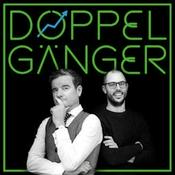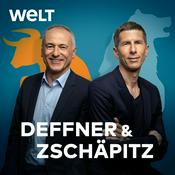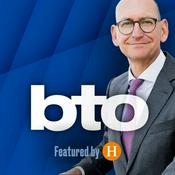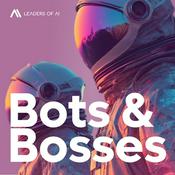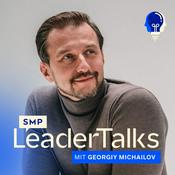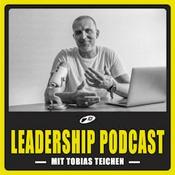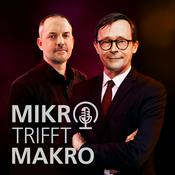27 Episoden
- In Episode 27, the AI or Die crew is back.
The team is joined by special guest Jenny Owens, Senior AI Program Administrator at Cleveland Clinic and Chair of the HIMSS Northern Ohio AI Center of Excellence Committee. Jenny brings a rare, inside look at how a major health system evaluates, validates, and governs AI — from the human realities of working with LLMs to running a full AI scribe evaluation that began with 126 vendors. Her perspective offers one of the most practical views of modern AI governance you’ll find.
Show Notes
0:00 – Welcome Back Rehgan returns from maternity leave; team catches up on Halloween abroad, newborn sleep, LA travel, and what changed (and didn’t) in AI during two months away.
4:30 – Industry News – OpenAI’s IPO ambitions – NVIDIA & Palantir partnership momentum – California’s proposed ban on AI posing as licensed health pros – Ohio’s proposal to outlaw AI “marriages” – Public anxiety around therapy bots, critical thinking, and “AI psychosis”
13:20 – AI in Medicine Parenting + AI tools; physician reactions to AI-influenced patient questions; why clinicians (not laypeople) are best positioned to validate AI outputs.
18:45 – Enterprise AI Shifts AI flattening org charts, reducing communication bottlenecks, driving efficiency trends (including Amazon layoffs), and reshaping cross-team workflows.
22:30 – Guest Joins: Jenny Owens Jenny’s roles at Cleveland Clinic and HIMSS; host of the Health Data Ethics podcast.
23:00 – Governance + Enablement Her dual remit across governance and AI literacy reduces friction and creates holistic oversight. She describes governance mindsets (“Sam the Eagle”: risk & rules) vs. innovation mindsets (“Doc Brown”: speed & experimentation) — and how her job is to align both.
28:30 – Cleveland Clinic’s Governance Structure A multidisciplinary council including clinicians, cybersecurity, legal/compliance, data science, and bioethics. Reviews cover model performance, contextual risk, intended use, human interpretation, workflow impact, and ethics. Research AI is evaluated separately but reviewed early if headed toward clinical use.
34:00 – Culture & Values Governance mirrors Cleveland Clinic’s culture of curiosity, teaching, and patient-first thinking. Teams zoom out to philosophical questions: What does accuracy mean for LLMs? What hallucination tolerance is acceptable? How should non-determinism be handled? Decisions stay contextual and case-specific.
41:00 – Governance’s Core Challenge AI governance must evaluate both the model and the human using it. Few orgs have mature systems to monitor model performance alongside human actions. Governance is shifting from model-centric to workflow-centric.
44:20 – “AI Candyland” Jenny’s vision: a guided, gamified pathway for employees exploring AI ideas — with defined starting points, bumpers, fast tracks, and off-ramps. Designed to empower clinicians while keeping systems safe.
47:30 – The 126-Vendor AI Scribe Evaluation Cleveland Clinic began with 126 vendors, narrowed to 5, and ran a full evaluation planned for 6 months that ultimately took 12. Metrics included statistical performance, workflow fit, burnout impact, billing/coding reliability, draft quality, edit burden, and discrepancies between perceived vs. actual time saved.
54:00 – Why AI Projects Fail Common patterns: vague requirements, no baselines, poor change management, overhyped promises, lack of co-design, and leadership mandates without clarity.
56:00 – Wrap-Up Connect with Jenny on LinkedIn and via the Health Data Ethics podcast. The team signs off before a short holiday break. - In this episode of AI or Die, hosts Nick Woo and Brendan Kelly dive into the busy fall conference season and the AI patterns they’re seeing across enterprises.
What We Cover
Conference Insights – Highlights from recent events like Ohio VC Fest and what’s ahead at Data Connect.
Enterprise AI Trends – Common challenges organizations face in improving the throughput of AI solutions and reinventing governance.
Case Study Spotlight – A look at AI Meets Gene Therapy, a feature collaboration with Andelyn Biosciences, exploring how AI is shaping the future of healthcare.
Community & Connections – Why the fall season is packed with opportunities to meet partners, customers, and innovators across the AI ecosystem.
Why Listen
If you’re an AI leader, builder, or curious observer, this episode gives you a front-row seat to the conversations shaping enterprise adoption. Expect practical insights, emerging trends, and a touch of the personal that keeps the AI or Die community grounded and connected. - This week, our hosts welcome Ben Blanquera, VP of Technology and Sustainability at Rackspace Technology. Ben helps firms drive sustainable practices and accelerate their hybrid cloud and AI journey.
During this episode, we dive into Ben’s expertise as he shares valuable insights around agentic AI within the enterprise. We discuss recent trends, common blockers, and how to successfully drive adoption. We also highlight the guardrails needed for autonomous agents in high-stake environments, and how enterprise leaders can start their AI agent journey.
Ben Blanquera's Linkedin
FAIR Website
Agentic AI Readiness Diagnostic
How 100 Enterprise CIOs Are Building and Buying Gen AI in 2025
AlignAI Linkedin
AlignAI Website
AlignAI Instagram - On this episode, our hosts Nick Woo, Rehgan Bleile, and Brendan Kelly return for another audience Q&A episode, providing insight into the ethical implementation of AI systems within the enterprise.
The team dives into how to responsibly enhance model performance and evaluate the ROI from generative AI. We also discuss and address questions around automation inside the enterprise. Additionally, we focus on recent AI developments and how these may shape current and future conversations between leaders and their teams.
AlignAI Linkedin
AlignAI Website
AlignAI Instagram - On this episode, we welcome Scott Brown, an architect at Andelyn Biosciences. Scott has a focus on data flow enablement, operational excellence and innovation to serve analytics and AI.
We discuss the critical importance of human-in-the-loop oversight, the evolving role of evaluation frameworks for AI outputs, and the broader shift toward hybrid AI systems that blend generative and traditional machine learning techniques. From building early, low-risk use cases to preparing for more advanced agentic AI applications, we highlight actionable strategies for responsibly scaling AI across industries.
Scott Brown
AlignAI Linkedin
AlignAI Website
AlignAI Instagram
Weitere Wirtschaft Podcasts
Trending Wirtschaft Podcasts
Über AI or Die
AI or Die is the podcast where we hang out and talk about trends, news, and the great debate of AI. In each episode, hosts (and friends) Rehgan, Nick, and Brendan discuss topics and news in the data & AI space.Currently, they work together at AlignAI, a tech start-up based in Columbus, Ohio.
Podcast-WebsiteHöre AI or Die, Make Economy Great Again und viele andere Podcasts aus aller Welt mit der radio.de-App

Hol dir die kostenlose radio.de App
- Sender und Podcasts favorisieren
- Streamen via Wifi oder Bluetooth
- Unterstützt Carplay & Android Auto
- viele weitere App Funktionen
Hol dir die kostenlose radio.de App
- Sender und Podcasts favorisieren
- Streamen via Wifi oder Bluetooth
- Unterstützt Carplay & Android Auto
- viele weitere App Funktionen


AI or Die
Code scannen,
App laden,
loshören.
App laden,
loshören.





